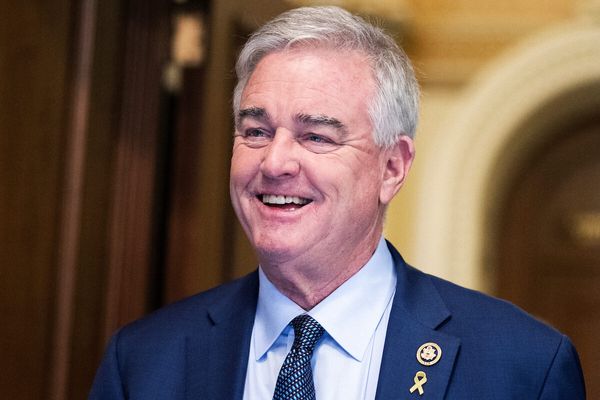
The people closest to you influence far more than your taste in music, your favorite shows, or your weekend plans. They can shape the way you spend, save, and think about money—sometimes in ways that sneak right under your radar. One friend’s casual “treat yourself” mantra can turn into an accidental drain on your bank account. A
nother’s obsession with chasing the latest gadgets might make you feel like you’re falling behind if you don’t keep up. The truth is, financial habits are contagious, and your circle might be silently nudging your wallet in directions you never intended.
1. The Silent Power of Peer Pressure
Peer pressure doesn’t end after high school—it just gets more subtle. Instead of daring someone to do something reckless, it might look like friends casually suggesting “just one more round” at the bar. Those little nudges pile up, and before long, what felt like harmless fun leaves your bank balance gasping for air. When everyone around you spends freely, saying no can feel like you’re rejecting the group itself. That pressure is invisible but powerful, and it can change how you handle money without you even realizing it.
2. Lifestyle Inflation in Disguise
Lifestyle inflation often sneaks in through social circles rather than personal decisions. When friends upgrade to bigger homes, flashier cars, or trendier wardrobes, the urge to match them can feel irresistible. It’s not always about competition—sometimes it’s simply about wanting to belong. The problem is, mimicking others’ spending doesn’t take into account your own financial situation. Suddenly, what was once “extra” in your budget becomes the new baseline, and saving takes the back seat.
3. The Cost of Keeping Up Appearances
Social media has magnified the pressure to keep up with friends’ lifestyles. A dinner out or a trip posted online can spark an unspoken expectation to do something equally impressive. What looks like fun bonding moments can mask a cycle of overspending just to maintain appearances. Your circle may not mean any harm, but the silent comparison game can cost more than it’s worth. In chasing the illusion of balance, financial stability can easily slip through the cracks.
4. The Hidden Influence of Group Norms
Every social circle has unspoken rules that shape behavior. If the group norm is splurging on weekends, skipping savings goals starts to feel normal too. Over time, spending habits that once felt uncomfortable become routine. People rarely notice when they’ve adopted those norms—it just feels like fitting in. The danger is that group-driven habits can override personal financial goals before they’re even fully formed.
5. Friends as Cheerleaders for Overspending
Friends often mean well when they encourage indulgence, but their cheerleading can quietly sabotage budgets. Phrases like “you deserve it” or “it’s just money” carry more weight when coming from someone close. Constant reassurance makes it easier to justify choices that don’t line up with long-term goals. This doesn’t make those friends bad—it just means their enthusiasm can blur boundaries. Without realizing it, their support might push you further from financial stability.

6. The Domino Effect of Debt
If debt is normalized within a group, it can spread quickly like falling dominoes. One person financing big purchases sets a precedent that others may follow, even if they can’t afford it. Suddenly, monthly payments become a shared experience, and the stress that comes with it multiplies. It’s easy to mistake collective financial strain for normal life. The ripple effect of debt doesn’t just weigh down one person—it shapes the mindset of the entire circle.
7. Subtle Signals That Shape Spending
Money cues aren’t always direct conversations—they’re often subtle signals. Seeing friends whip out premium credit cards, casually pay for luxuries, or talk about the “next big purchase” creates invisible benchmarks. Even silence speaks volumes if no one in the group openly values saving or budgeting. These signals shape what feels acceptable, nudging decisions without any outright pressure. By the time the impact shows, the habit feels like it was always your own choice.
8. When Generosity Becomes a Trap
Generosity is a beautiful quality, but it can quickly turn into a trap when it’s expected. Picking up the bill “just this once” can turn into a pattern when friends start counting on it. The line between kindness and obligation gets blurred, leaving one person carrying the weight of the group’s expenses. This creates resentment, financial strain, and even unspoken tension. What started as goodwill ends up hurting both the wallet and the friendship.
9. The Role of Financial Silence
Money is often the last topic friends want to talk about, which makes its influence stronger. When no one speaks openly about saving, investing, or financial stress, assumptions take over. Silence creates the illusion that everyone else is fine, fueling the pressure to match lifestyles. This lack of transparency means bad habits spread unchecked. Breaking that silence could be the first step toward healthier group dynamics.
10. Building a Healthier Money Circle
It’s possible to flip the script and create a circle that supports strong financial habits. Surrounding yourself with people who value savings and smart spending sets new, positive norms. Conversations about goals and budgets can feel awkward at first, but they build accountability. Encouragement to skip unnecessary spending or celebrate saving milestones can be just as powerful as pressure to splurge. Over time, the right circle makes smart financial choices feel natural, not forced.
Time to Rethink the Money Energy Around You
The influence of friends on finances is real and ignoring it only makes the impact stronger. Recognizing the subtle ways your circle shapes your habits is the first step to reclaiming control. Changing the money energy around you isn’t about cutting people out—it’s about setting boundaries and choosing influence wisely. Financial health thrives in environments where support and accountability replace pressure and comparison.
How has your social circle shaped your money habits—are they lifting you up or holding you back? Share your thoughts below.
Read More
7 Jobs That Can Immediately Change Your Social Life
6 Financial Habits That Were Created to Benefit Credit Lenders
The post Is Your Social Circle Fueling Bad Financial Habits You Don’t See? appeared first on Everybody Loves Your Money.







